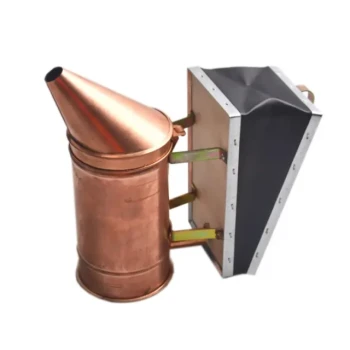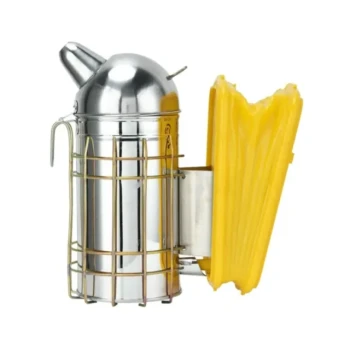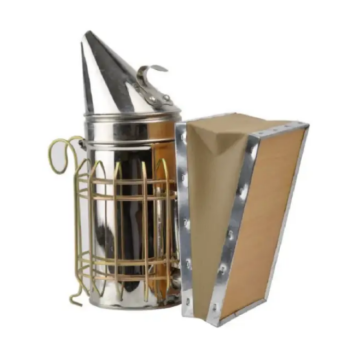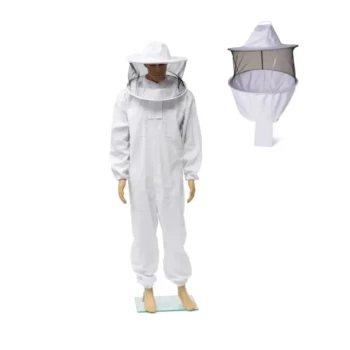To be precise, bees do not "hate" smoke in the human sense, but it triggers a powerful, instinctual survival response. Beekeepers use smoke not to anger or harm bees, but to mask their chemical alarm signals and initiate a feeding behavior that makes the colony calmer and less defensive during hive inspections.
Smoke leverages a bee's ancient survival instincts. By simulating a distant wildfire, it shifts the colony's priority from defending the hive to consuming honey in preparation for a potential evacuation, making them significantly more docile.
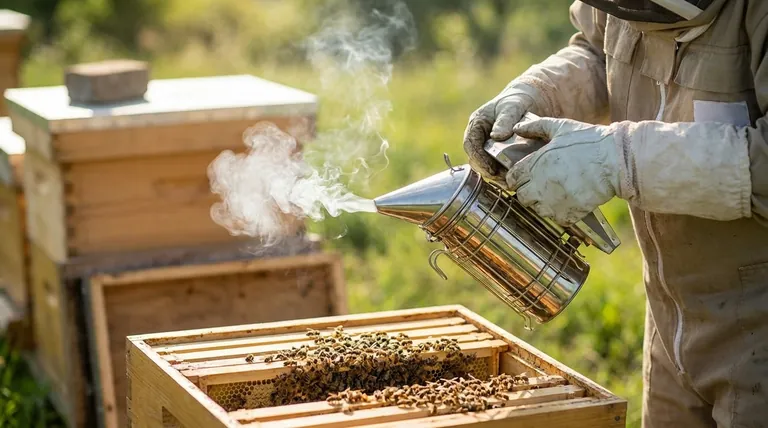
The True Purpose of Smoke: Masking Communication
A honeybee colony operates as a superorganism, relying on complex chemical signals called pheromones to communicate. Smoke effectively hijacks this communication system.
Overriding the Alarm Pheromones
When a bee feels threatened or stings, it releases an alarm pheromone. This chemical signal instantly alerts other guard bees in the vicinity, inciting a coordinated defensive attack.
Cool, white smoke from a beekeeper's smoker physically masks the receptors on the bees' antennae, preventing them from detecting this alarm signal.
Preventing a Defensive Chain Reaction
Without the ability to smell the alarm, a colony-wide defensive response is never triggered. A single agitated bee cannot recruit others to attack, breaking the chain reaction before it starts.
This disruption allows a beekeeper to open and inspect the hive without provoking a massive, dangerous stinging event. The effect is temporary, wearing off within 10 to 20 minutes after the smoke clears.
Triggering an Ancient Survival Instinct
Beyond masking communication, smoke also triggers a much deeper, ingrained behavior linked to the threat of fire.
The "Forest Fire" Hypothesis
The prevailing theory is that the smell of smoke signals a potential forest fire, which would be a catastrophic event for a stationary hive. This triggers an immediate shift in the colony's priorities.
The Engorgement Response
Faced with the possible destruction of their home, the bees' instinct is to save the colony's most precious resource: honey. They rush to the honeycomb and begin to engorge themselves, filling their honey stomachs as an emergency food supply.
Their goal is to carry as much fuel as possible in case they are forced to abandon the hive and establish a new one elsewhere.
A Full Stomach Means a Calmer Bee
This feeding frenzy has a useful side effect. A bee with a full abdomen of honey finds it physically difficult to flex its body into the "sting" position.
Preoccupied with eating and weighed down by honey, the bees are far less likely to fly up and behave defensively. They are focused on preservation, not aggression.
Understanding the Trade-offs and Best Practices
While highly effective, the use of smoke is a management technique that requires proper understanding and application to ensure the bees' well-being.
Is Smoke Harmful?
Used correctly, cool, gentle smoke is not harmful to bees. However, hot smoke or embers from a poorly managed smoker can burn their delicate wings and bodies.
The key is to ensure the smoker is producing a thick, cool, white smoke, not a hot, thin flame. This is achieved by using dry, untreated fuel and letting it smolder properly.
The Goal is Calm, Not Chaos
A common mistake is to use too much smoke. The goal is not to flood the hive but to use just enough to gently disrupt communication and encourage the desired response.
A few gentle puffs at the entrance and under the lid are usually sufficient. Over-smoking can be overly stressful for the colony and is unnecessary.
Making the Right Choice for Your Goal
Understanding the bee's reaction to smoke is key to interpreting their behavior, whether you are a beekeeper or simply a curious observer.
- If your primary focus is on bee biology: View smoke as a tool that triggers predictable, instinctual behaviors related to communication disruption and resource preservation.
- If your primary focus is on beekeeping: Use cool, gentle smoke as a minimal and temporary measure to ensure both your safety and the colony's calm during essential inspections.
Ultimately, smoke is a practice that works with bee biology, redirecting their collective energy from defense to survival.
Summary Table:
| Bee Reaction to Smoke | Key Effect | Benefit for Beekeepers |
|---|---|---|
| Masks Alarm Pheromones | Prevents defensive chain reaction | Safer hive inspections |
| Triggers Engorgement Response | Bees focus on eating honey | Less aggressive, more docile bees |
| Simulates Distant Wildfire | Activates ancient survival instinct | Predictable, manageable behavior |
Ready to Work with Calmer Bees?
Understanding bee behavior is the first step to successful hive management. For professional beekeepers and equipment distributors, having the right tools is essential. HONESTBEE supplies top-quality beekeeping supplies and equipment—including reliable smokers and fuel—to commercial apiaries and distributors through our wholesale-focused operations.
Let us help you ensure every inspection is safe and efficient. Contact our team today to discuss your wholesale needs and discover how our products support healthy, productive colonies.
Visual Guide
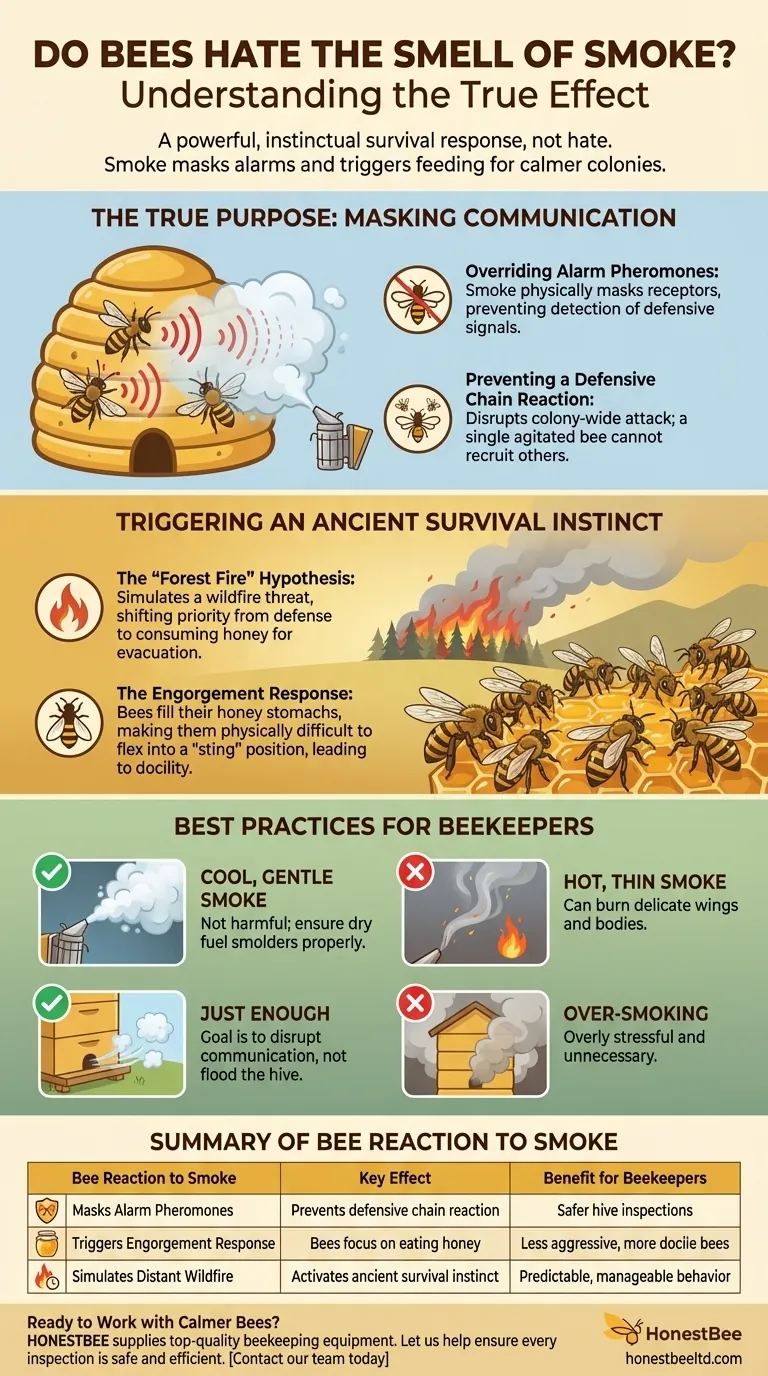
Related Products
- European Stainless Steel Bee Smoker for Honey Bee Hive
- Premium Traditional Copper Bee Smoker with Bellows
- Professional Bee Smoker with Elongated Spout and Durable Bellows for Beekeeping
- Heavy-Duty Bee Smoker with Durable Plastic Bellows for Beekeeping
- Heavy Duty Manual Bee Smoker Blower for Beekeeping
People Also Ask
- How do bee smokers work? A Guide to Calming Your Hive for Safer Inspections
- Can I use smoke to get rid of bees? Why Smoke is a Tool, Not a Solution
- How should smoke be applied to a beehive during inspection? Master the Gentle Art of Calming Bees
- What are bee smokers made out of? Choose the Right Material for Your Apiary
- Can you use smoke to get rid of bees? The Truth About Bee Behavior and Control

